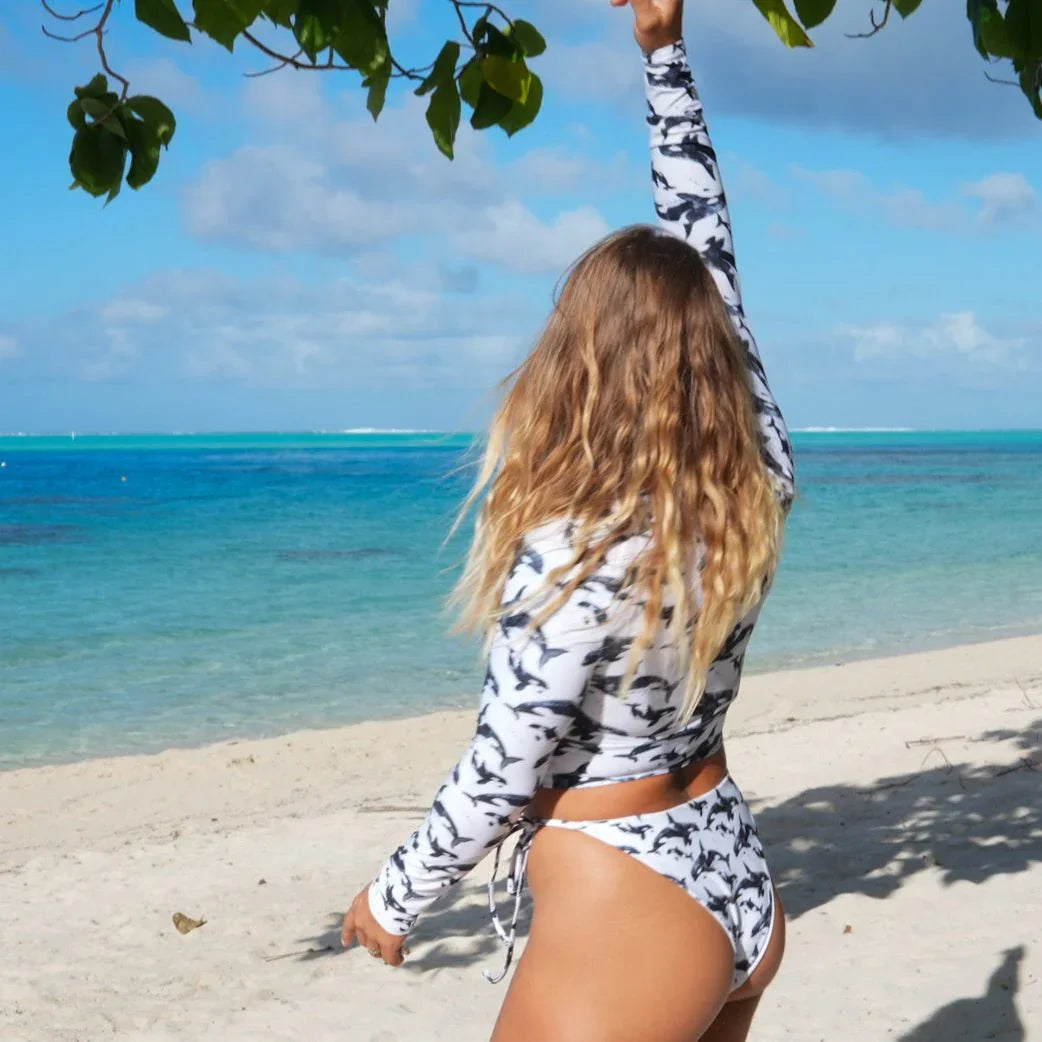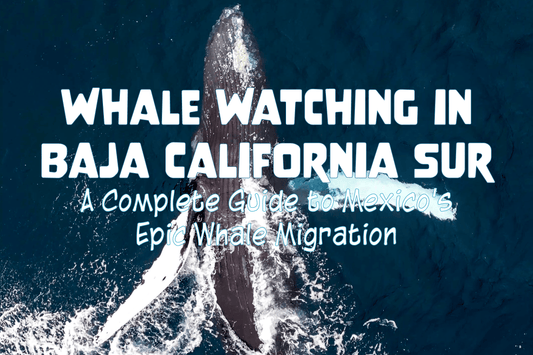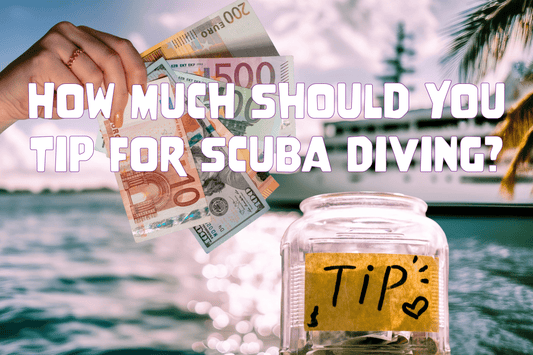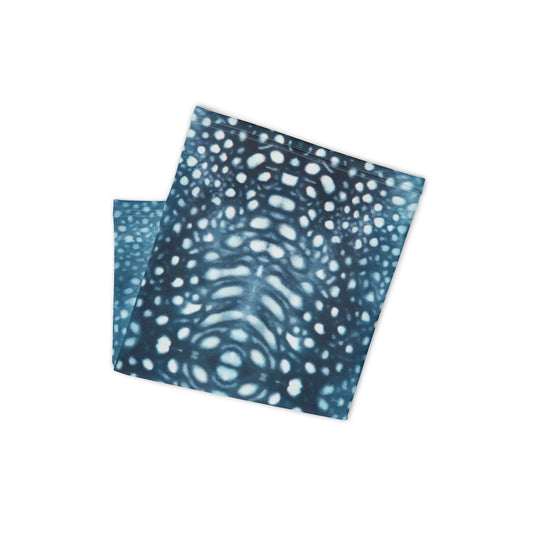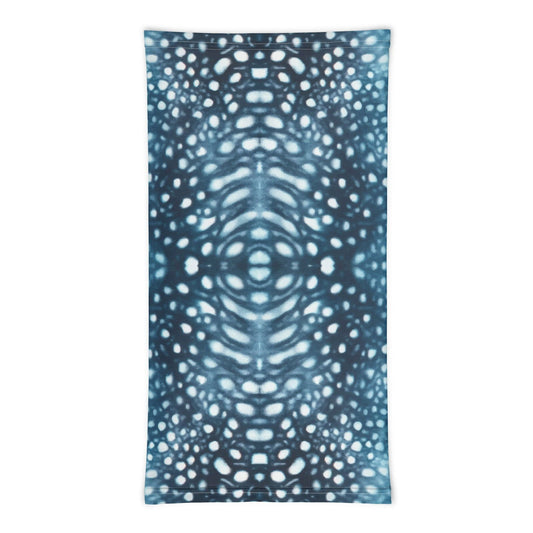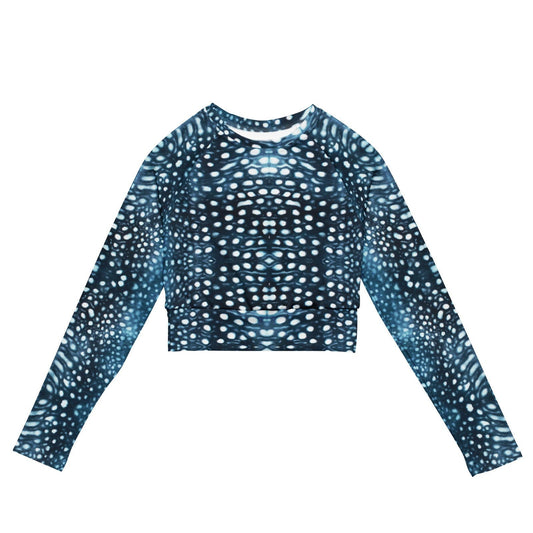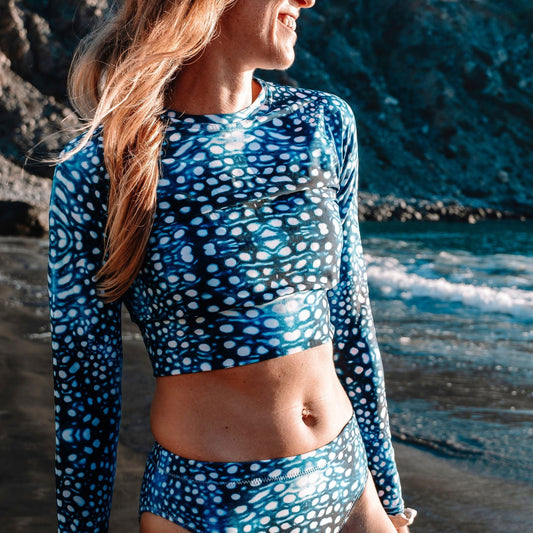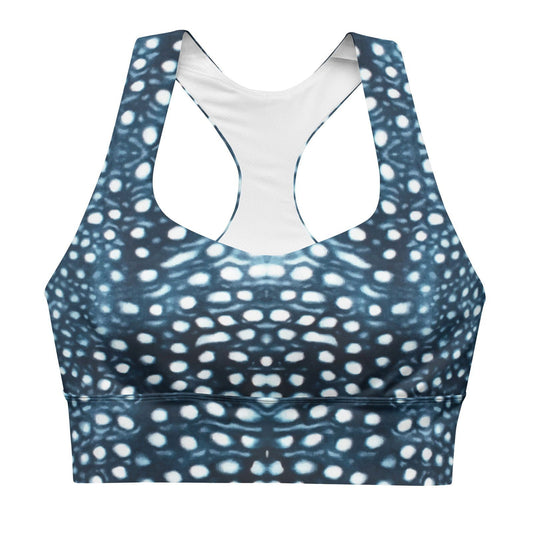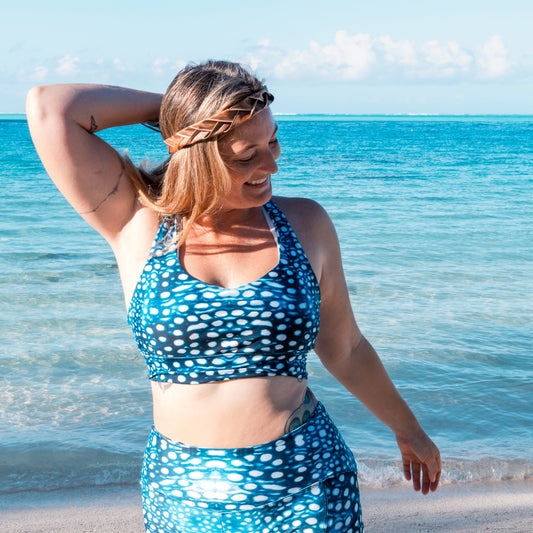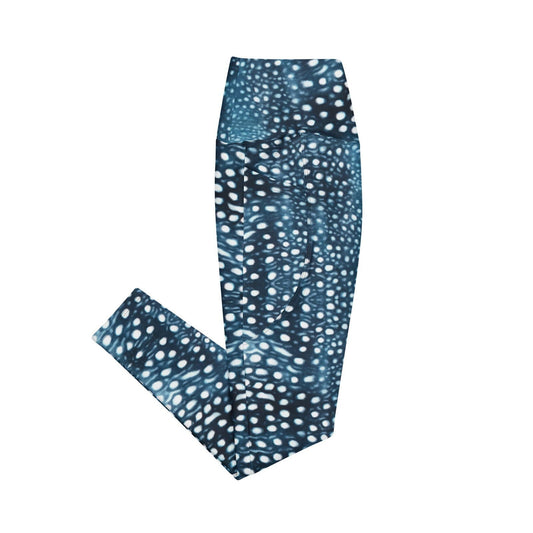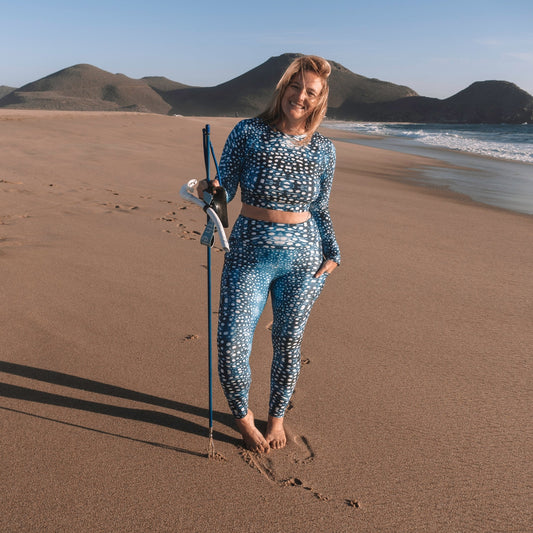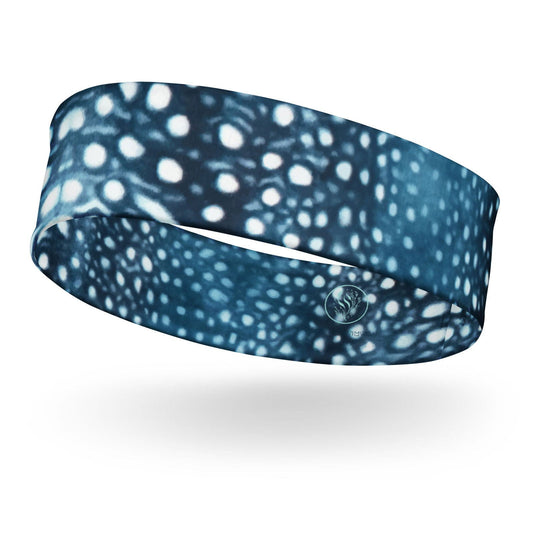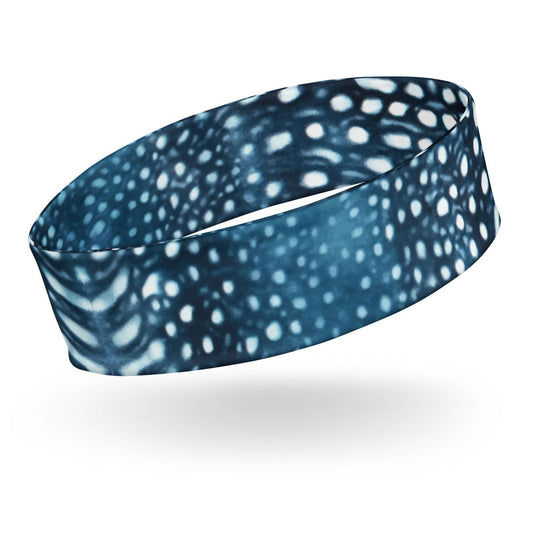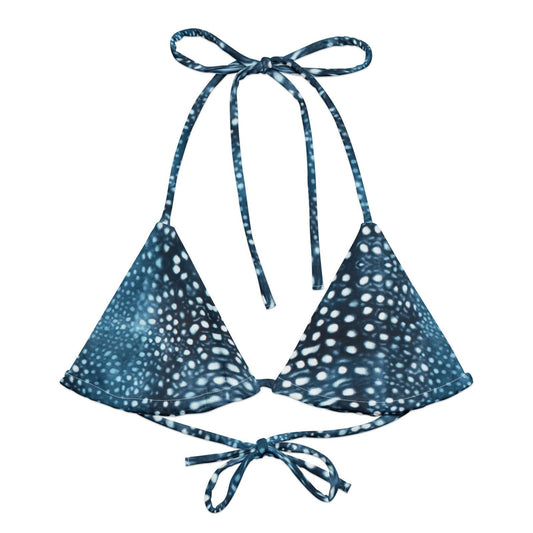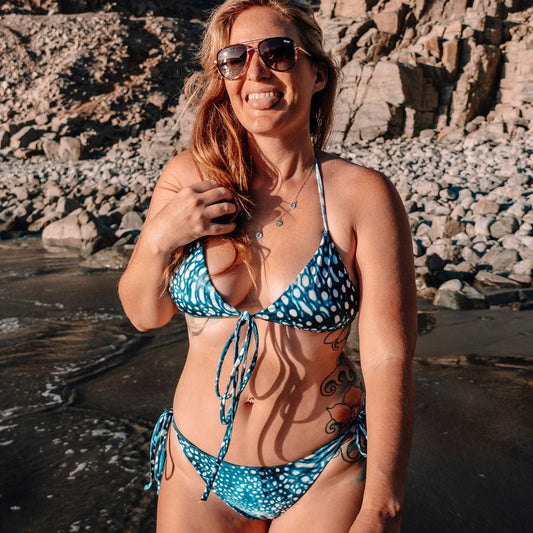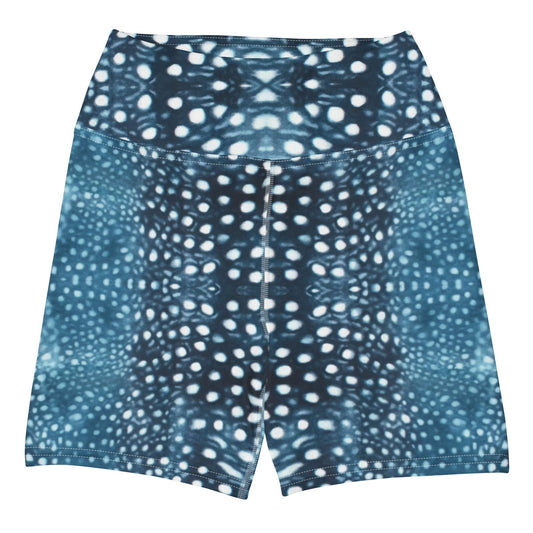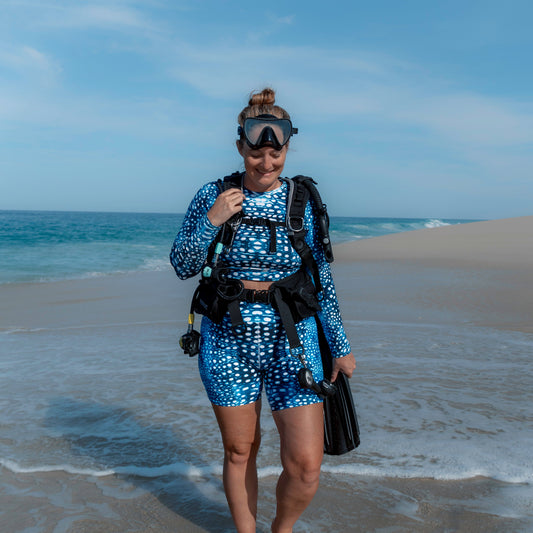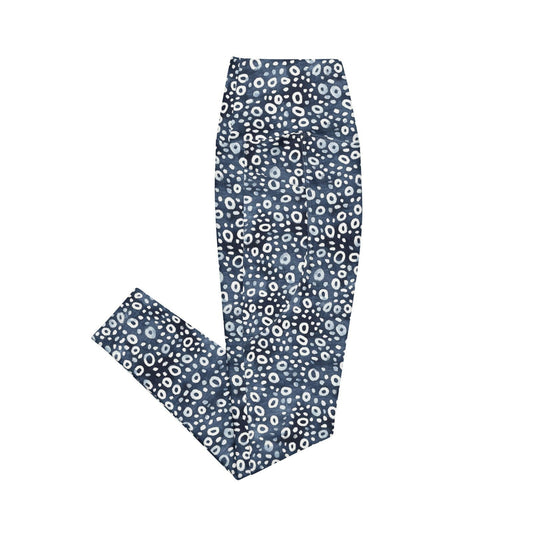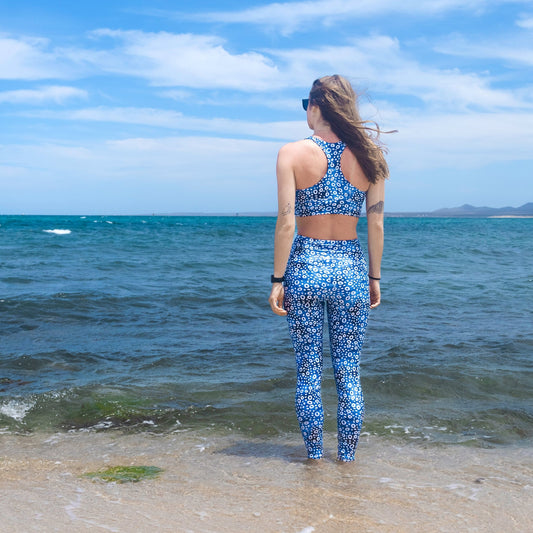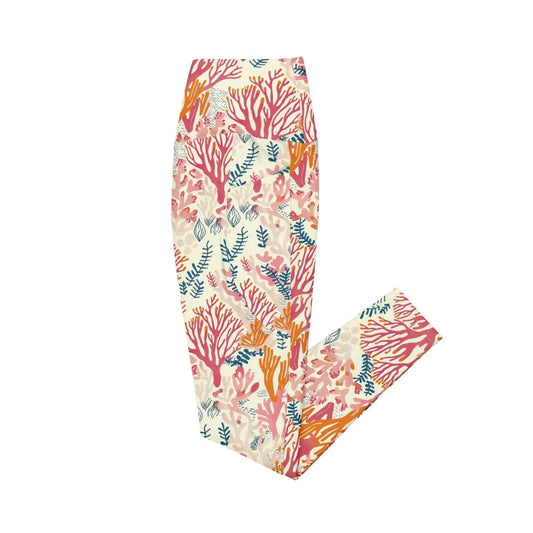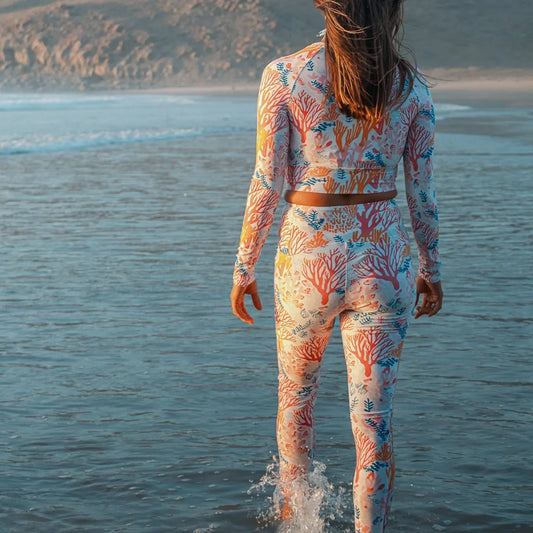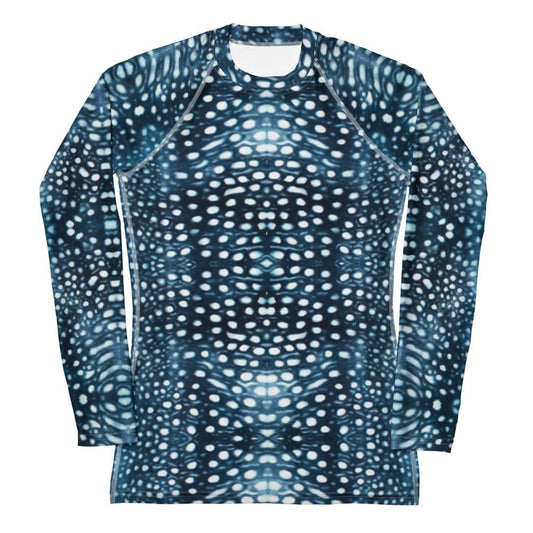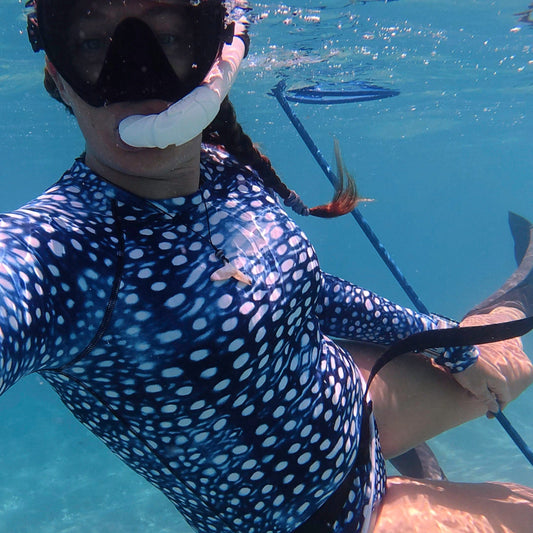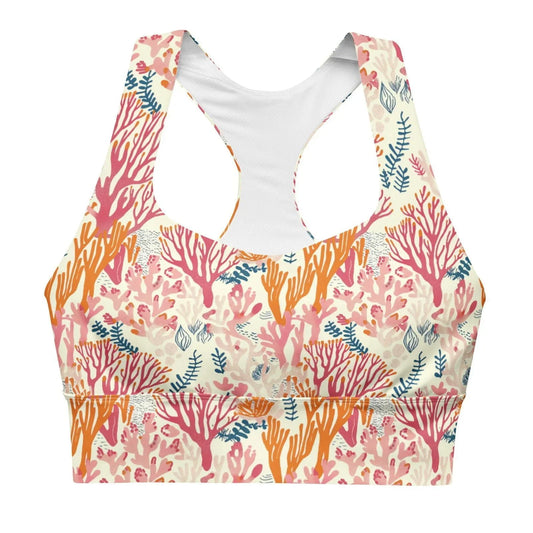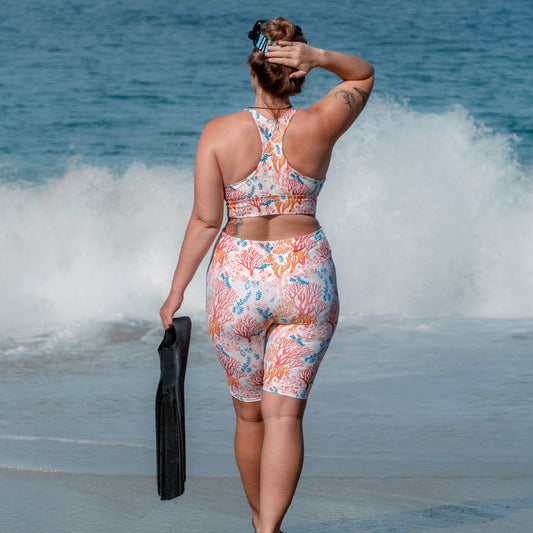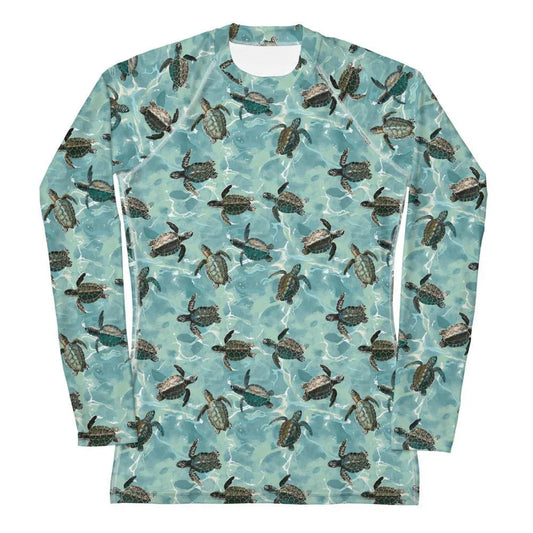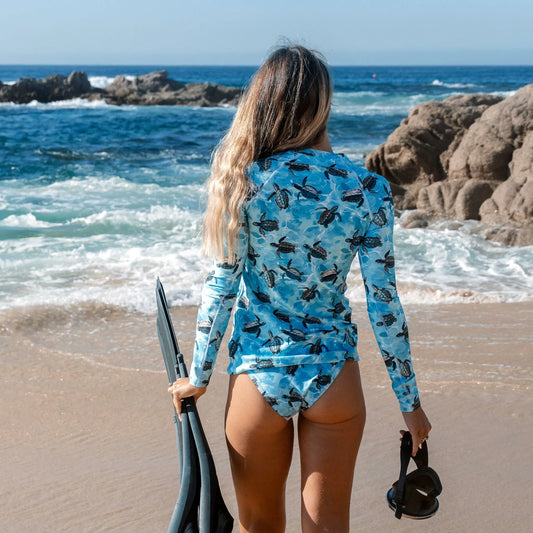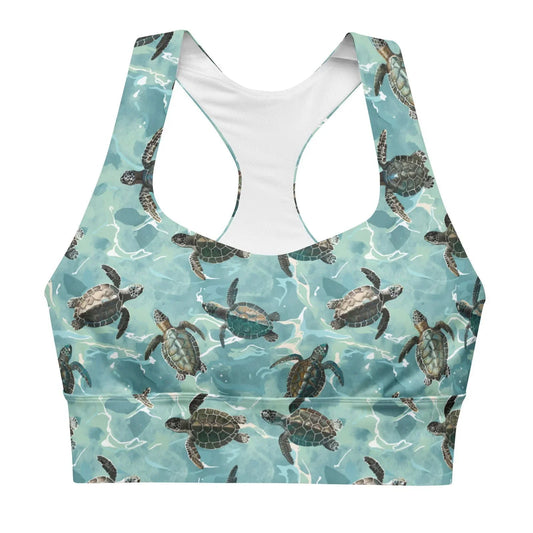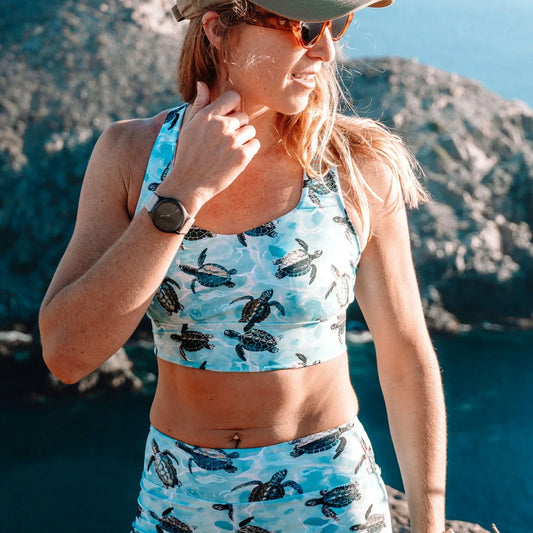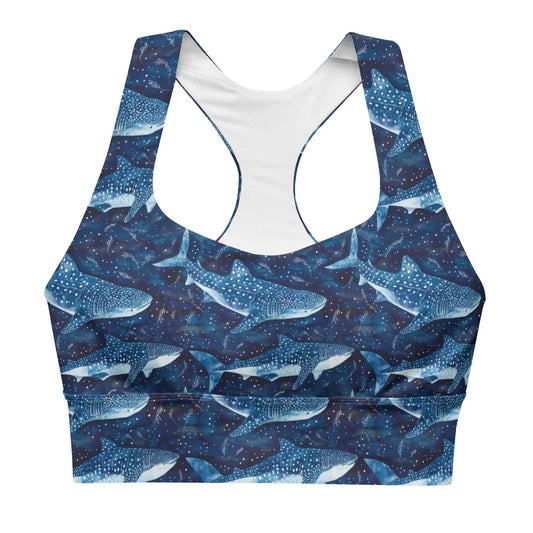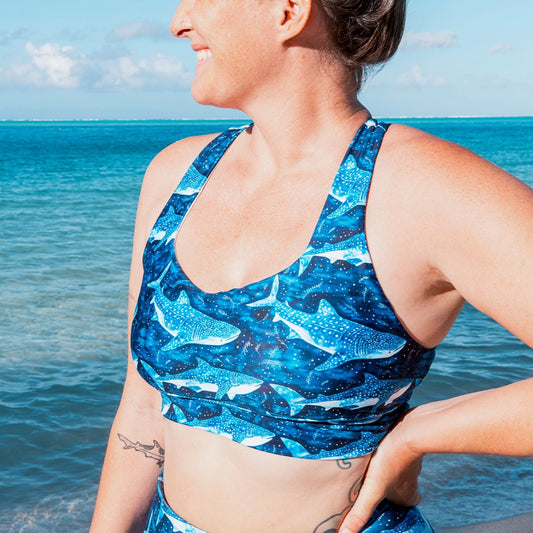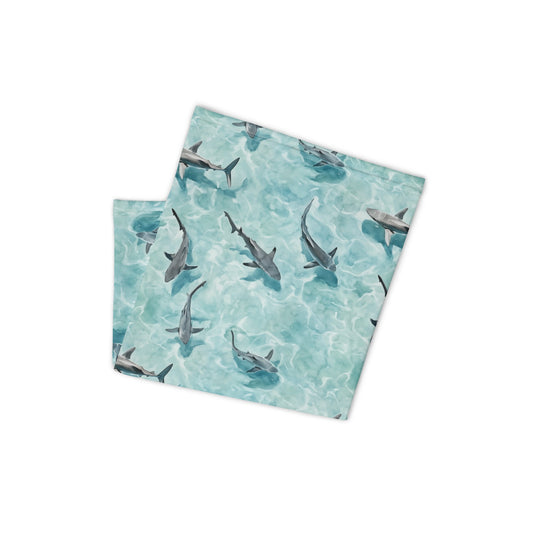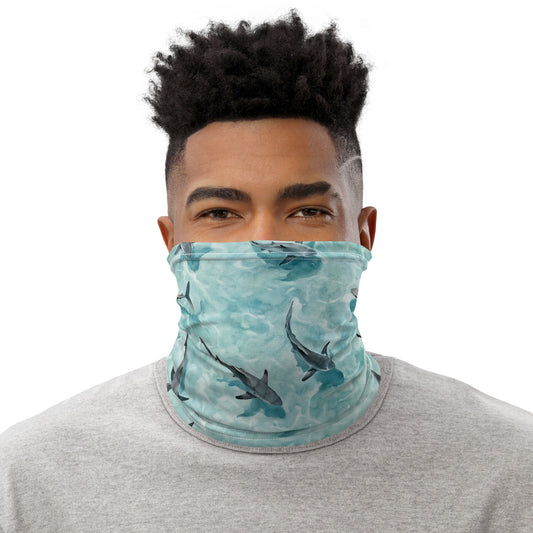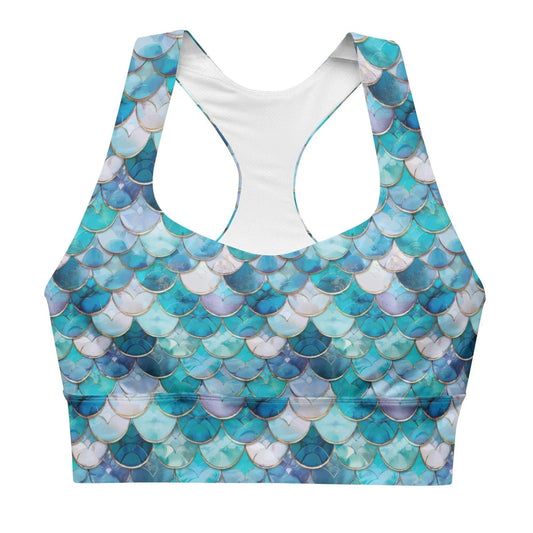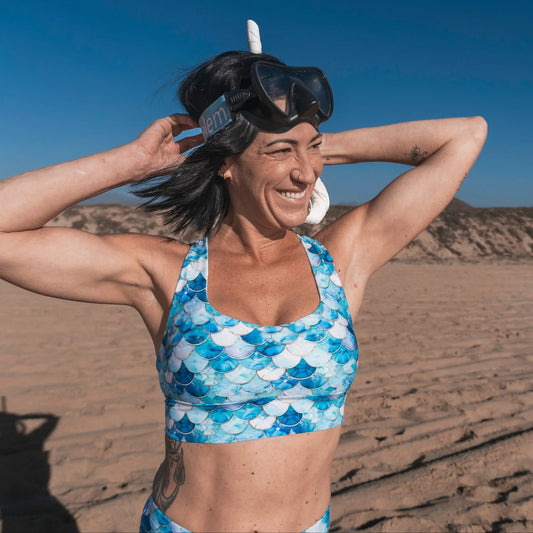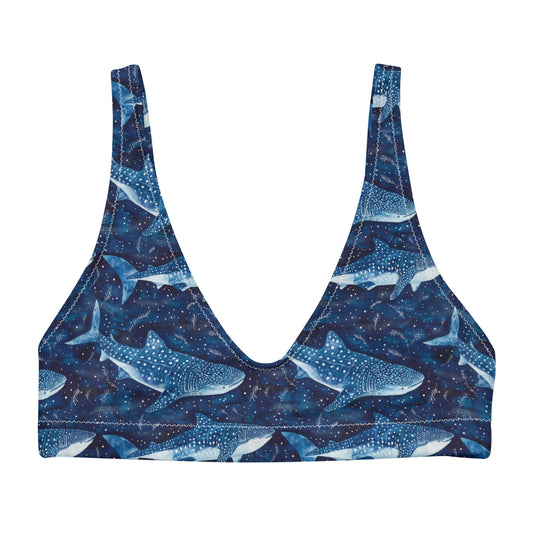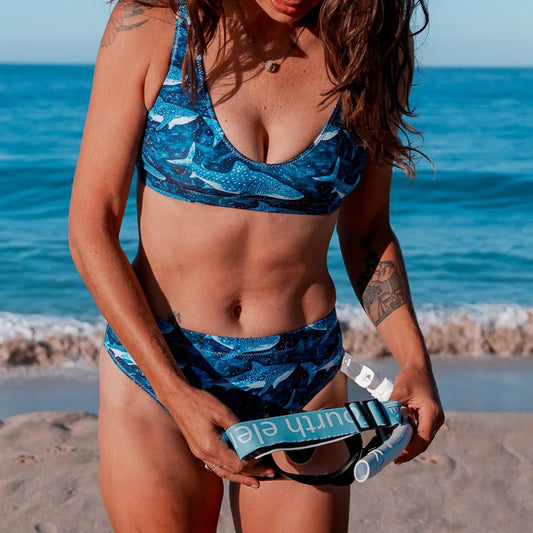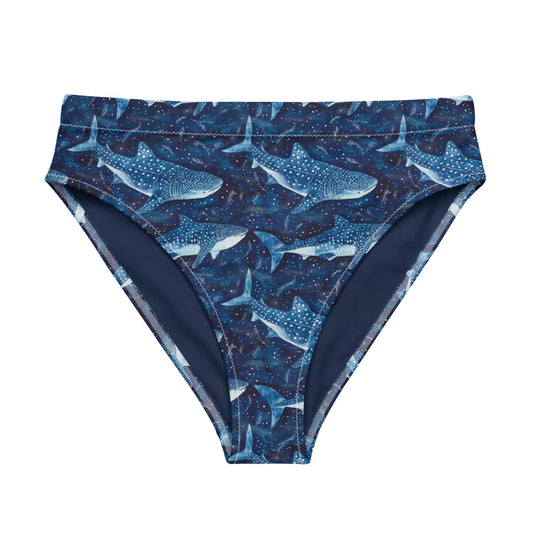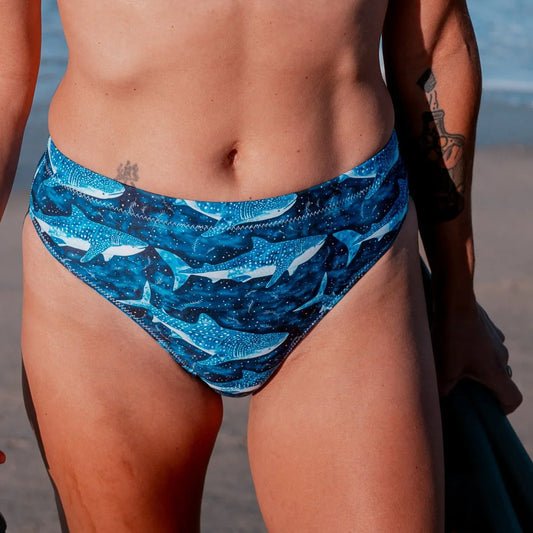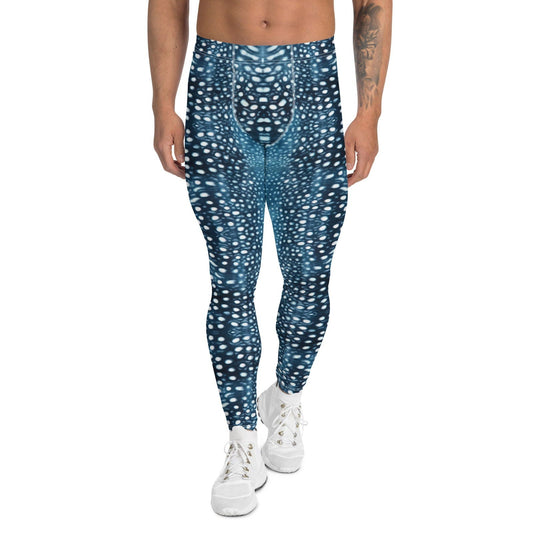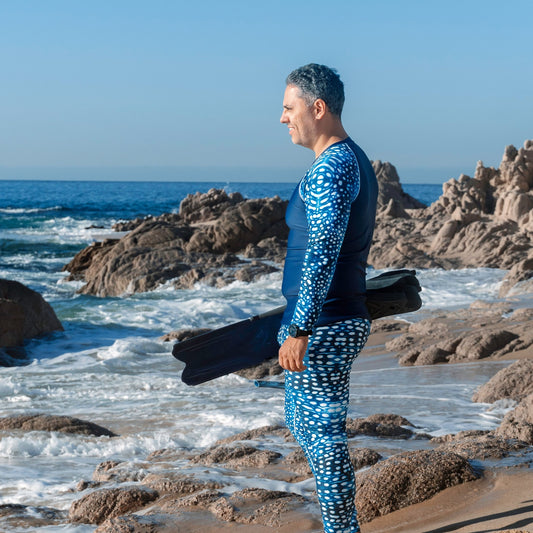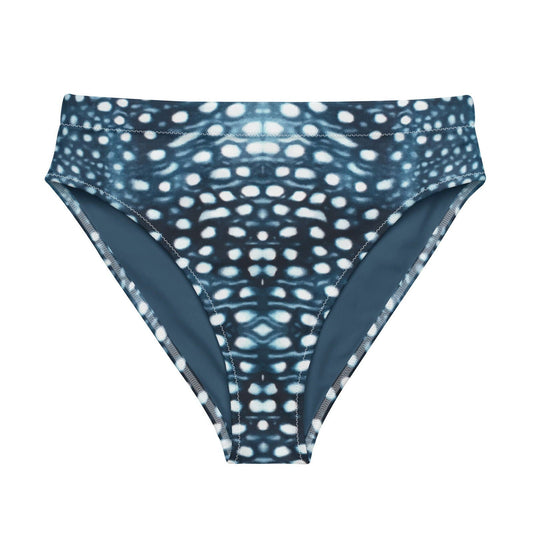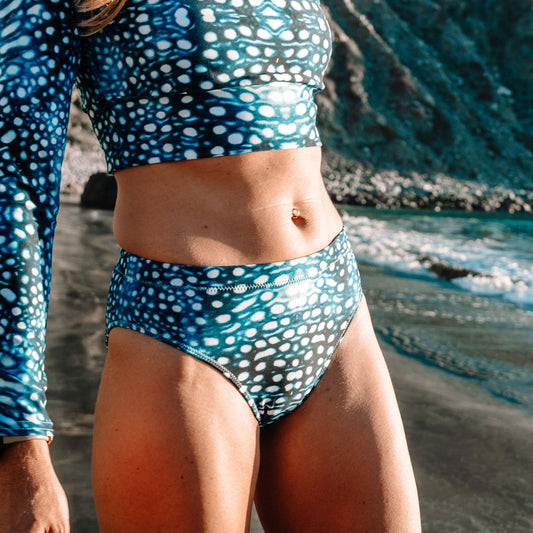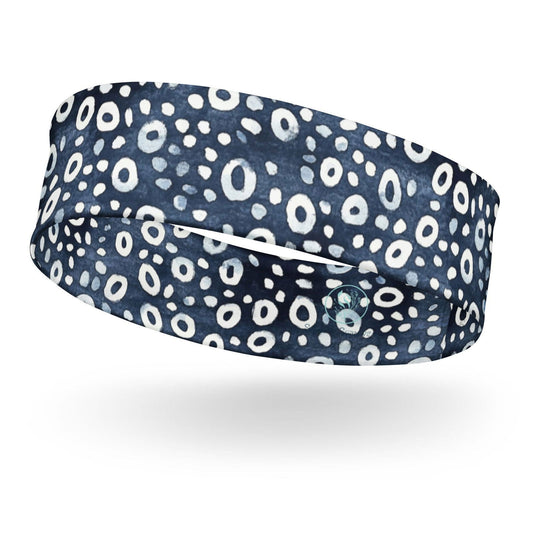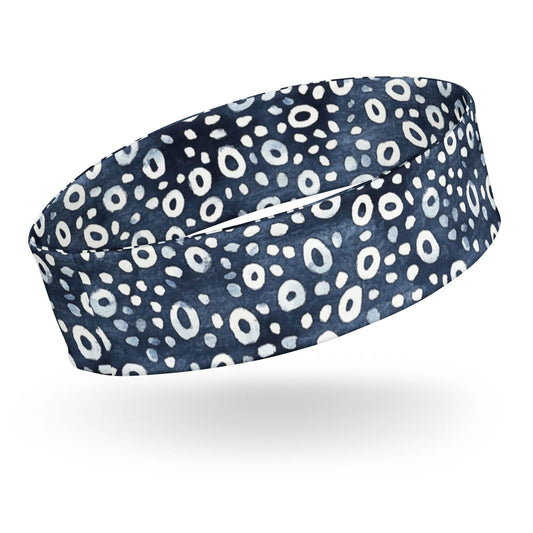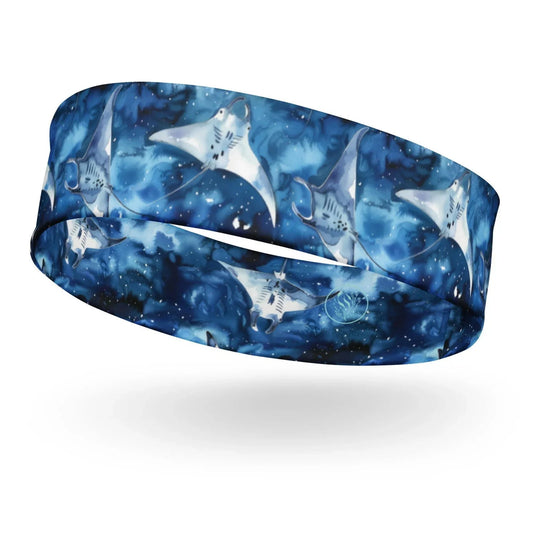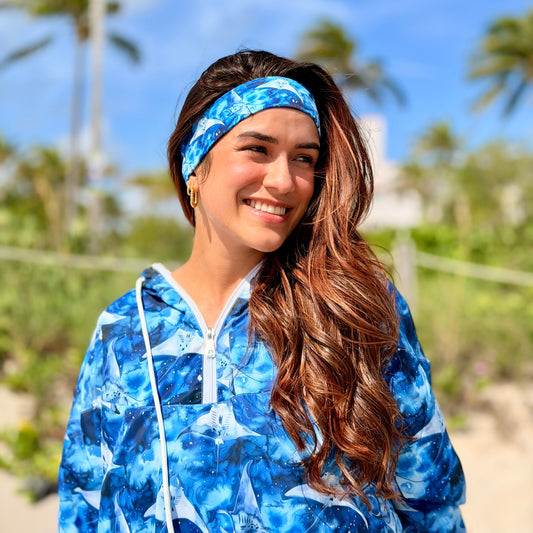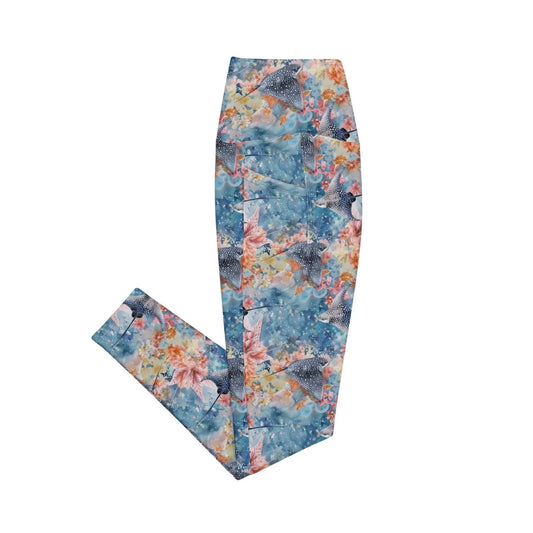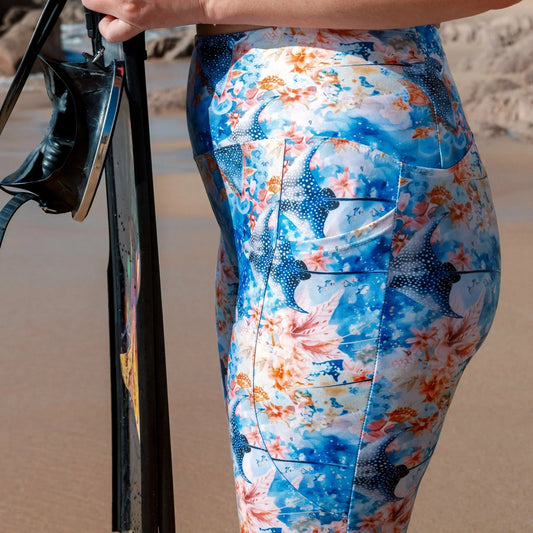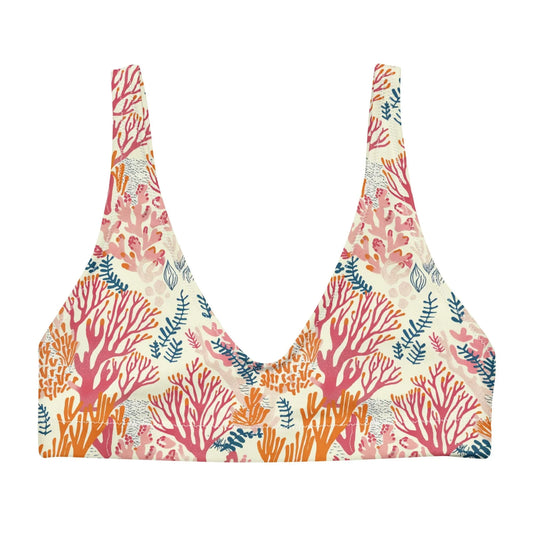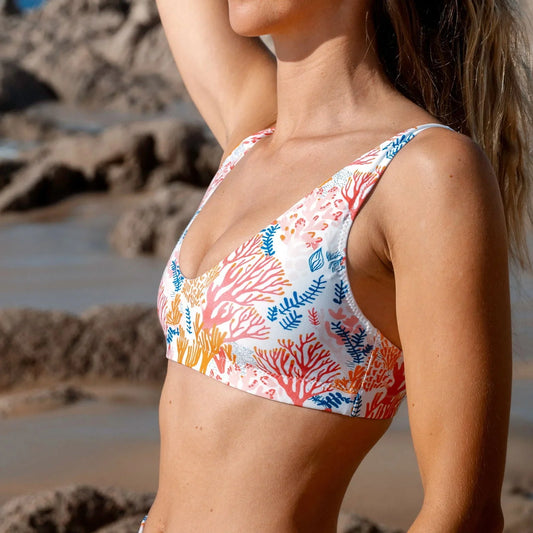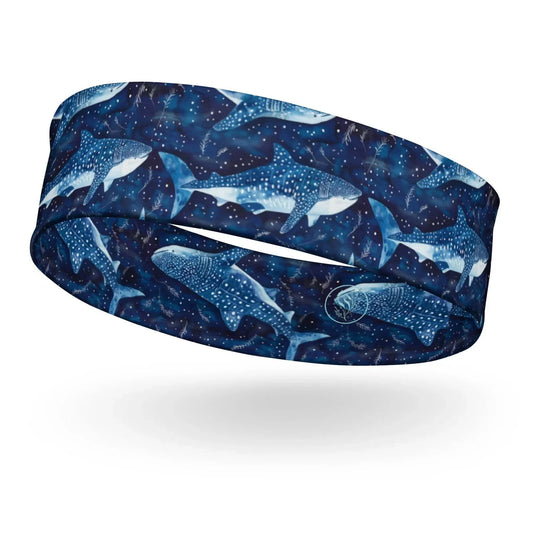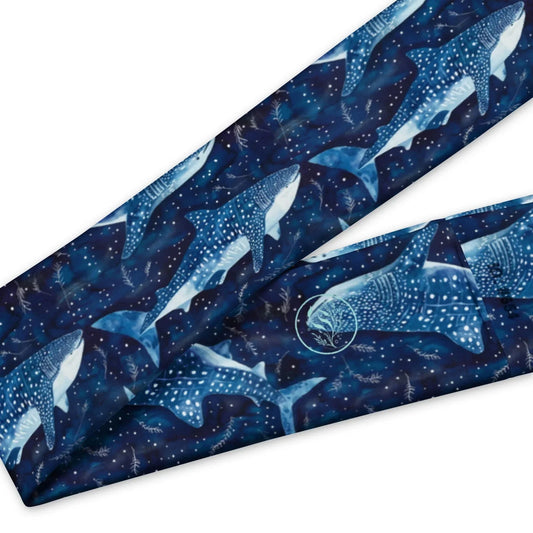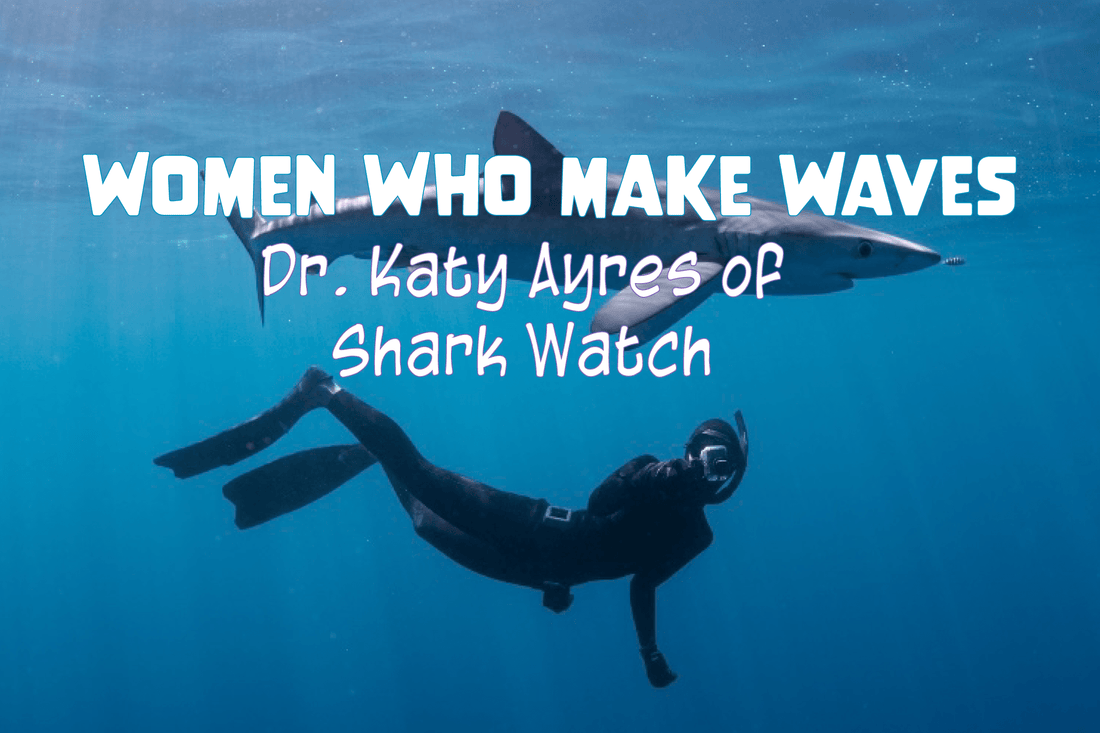
Women Who Make Waves: Dr. Katy Ayres of Shark Watch
Angela ZancanaroShare

Katy is one of those people you meet and have no idea just how amazing they are, until you start hearing about the work they’re quietly doing behind the scenes. I first met her on a dive boat with friends, and over time I kept catching glimpses of what she was up to: shark research, drone surveys, conservation projects… the list kept growing!
She’s a marine scientist through and through, with a focus on studying shark aggregations within marine protected areas in Baja California Sur. She also remotely analyzes shark movement data for a nonprofit organization, and works as a shark safety diver, guiding snorkeling excursions with pelagic sharks. On any given day, you might find her flying drones, tagging blacktip sharks, swimming with sharks or teaching others how to conduct areal surveys.
What makes Katy stand out isn’t just her credentials (which are seriously impressive) it’s her grounded, generous presence her dedication to science, conservation, and inclusion. We asked her to share more about her journey:
When did you first fall in love with the ocean, and how did that shape your path?
My fascination with sharks came first—long before my love for the ocean. I became captivated by them at a young age; apex predators always intrigued me, and Jurassic Park was my favorite film growing up.
What first sparked your interest in sharks?
It all started with a marine life book that belonged to my grandmother. I was especially drawn to the shark page—there was an image of a grey nurse shark with long, thin teeth that both terrified and fascinated me. It left a lasting impression and sparked my early obsession.
Was there a turning point when you knew marine science was what you wanted to pursue?

Thankfully, my parents recognized my passion for sharks and animals early on and encouraged me to pursue it as a career. From that point on, I dedicated myself to studying marine life. I hold a Bachelor’s degree in Marine Vertebrate Zoology, a Master’s in Marine Environmental Management, and a PhD in Marine Sciences.
What’s been the most memorable moment of your career so far?
Flying the drone and witnessing hundreds of sharks along the shoreline was a turning point—that's when I knew my PhD research was going to succeed.
What’s a challenge or obstacle you’ve faced on your journey, and how did you overcome it?
Moving to a foreign country without initially speaking the language was incredibly challenging, especially attending a university where few others spoke English. Being far from my family has also been difficult—something that’s only grown more challenging with time.
What challenges have you faced as a woman in science, and how have you pushed through?

Not being listened to and being underestimated. I am very persistent and have always managed to find a way even if there was someone telling me it wasn’t possible or it wasn’t a good idea.
What keeps you going when the work feels heavy or overwhelming?
Remembering that my younger self would be so proud of what I have achieved.
What’s something you wish more people understood about your work or your field?
Shark science is highly competitive, and job opportunities can be limited. Much of the work involves computer-based analysis and demanding fieldwork. For those who want to spend significant time in the water with sharks, tourism can offer that opportunity—which is why I also work as a shark safety diver.
If you could give one piece of advice to someone dreaming of a career like yours, what would it be?

Learn Spanish—or another second language—as early as possible; it can open up many opportunities, especially when working internationally. I’d also recommend learning to scuba dive and/or freedive, and focusing on becoming as comfortable and confident in the water as you can. It makes a big difference.
If you could share one simple action people could take to help shark conservation, what would it be?
Be mindful of seafood choices. Only eat seafood if you know where it comes from, and whenever possible, choose local and seasonal options. This reduces pressure on overfished species and supports more sustainable practices.
Have there been any moments in the field that completely shifted how you see the ocean or your role in protecting it?
One of the most rewarding experiences was working alongside shark fishermen who helped me tag sharks for my PhD research. They aren’t villains; they’re people simply trying to make a living. After completing my PhD, I also realized there was a lack of community involvement in my drone monitoring project. That’s why I started involving local community members in the fieldwork, teaching them how to fly the drone so they could take a more active role in monitoring and conservation efforts.
Can you tell us about the Shark Watch project and what inspired you to start it?

In 2017, I came to La Paz for a Master’s internship with Pelagios Kakunja. I instantly fell in love with Cabo Pulmo and was eager to work with bull sharks—but since someone was already studying them, I turned my focus to blacktip sharks. There was an existing monitoring project where sharks were counted from a vantage point using binoculars. That’s when I realized that getting a better aerial view could improve the accuracy of counting and identifying sharks. This insight led me to start using a drone, and that’s how Shark Watch was born!
What’s next for Shark Watch, and how can people support or follow your work?
We’re continuing drone training classes for local volunteers and ongoing monitoring efforts. I’m excited to share that we’ve just received a grant to upgrade our drones! With more drones and longer battery life, we’ll be able to monitor multiple areas of the park simultaneously, giving us a better understanding of shark populations and their distribution.
Follow Katy’s Journey
To keep up with Katy’s work and adventures, follow her on Instagram at @drkatyayres and check out @sharkwatchbaja for updates on the project, new shark footage, and ways to get involved.
Know a Water Woman Like Katy?
If Katy’s story reminds you of someone who deserves a shoutout—maybe they’re out there surfing, leading conservation efforts, maybe they are an artist or just deeply in love with the ocean—drop their name in the comments or send me a message info@salinityswimwear.com Women Who Make Waves is all about lifting up these stories.
